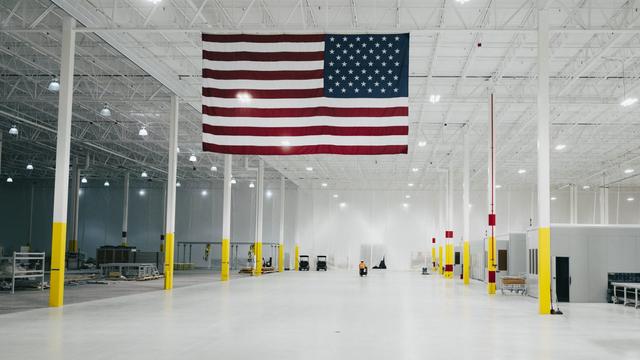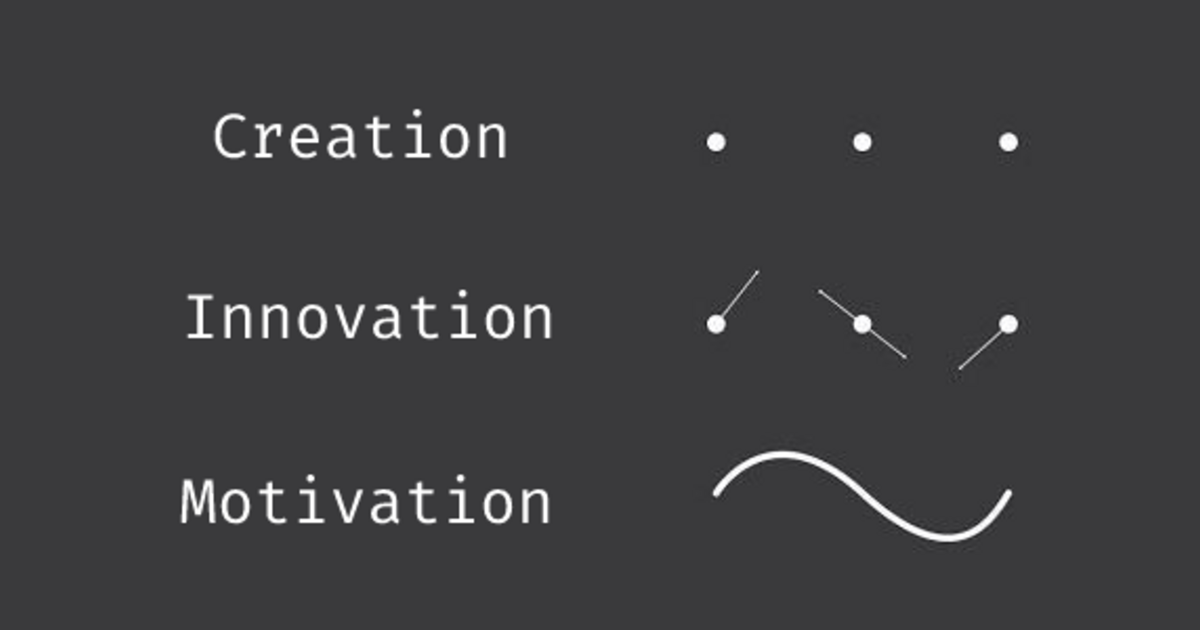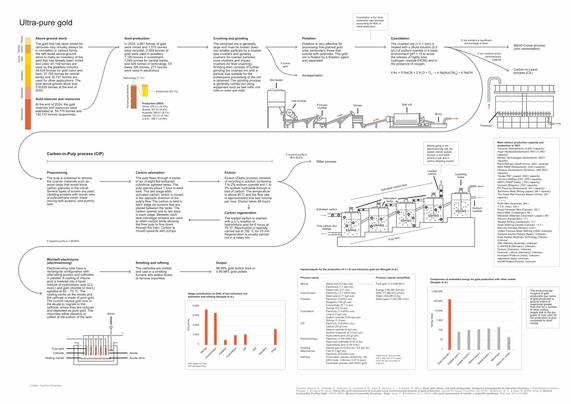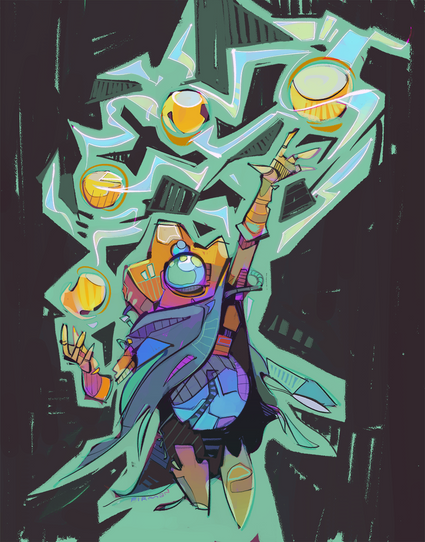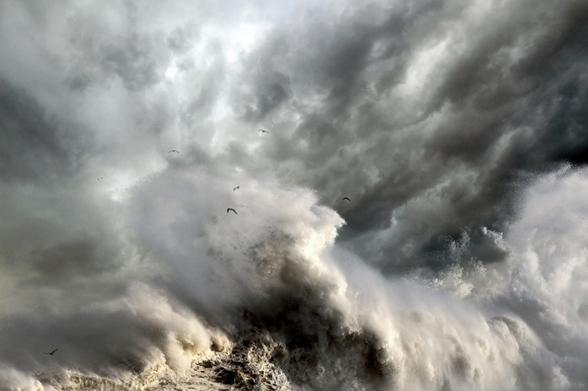After silicon and neon, I've looked at the industrial processes to produce ultra-pure gold (≥99.99%) mainly for semiconductors industry. As gold bullions mostly need to be 99.99% to be sold as investement, little to no extra footprint or processes to produce ultra-pure gold for semiconductors. Anyway, gold is already one of the most polluting element to extract and refine. On the bright side I keep learning a lot about industrial ecology.
Recent searches
Search options
#STS
What happens when someone with a background in science studies and an interest in patient experience has to stay in hospital?
Some passing thoughts on illness as a boundary object following my recent stay in hospital with a broken leg.
(seemed a good way to revive my blog)
#healthCare #hospitals #ScienceStudies #Patients #STS #scicomm #sciencecommunication
https://literacyofthepresent.wordpress.com/2025/04/03/illness-as-boundary-object/.

Excellent piece from @zephoria from Tech Policy Press arguing for "interventionism" - a form of pragmatism that seeks to recognise the uncertainty in socio-technical systems while ascribing importance to legal, policy and social mechanisms that counter-balance techno-solutionist narratives.
https://www.techpolicy.press/we-need-an-interventionist-mindset/
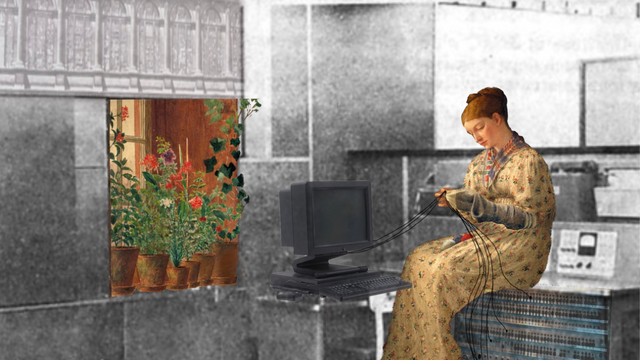
Calling for the #EASST Review. Speedy #sts contributions, due 12 May.
"We see the need to raise our voice. Critique in STS remains indispensable amid shifting political landscapes, censorship, rising austerity, and expanding corporate control over infrastructure."
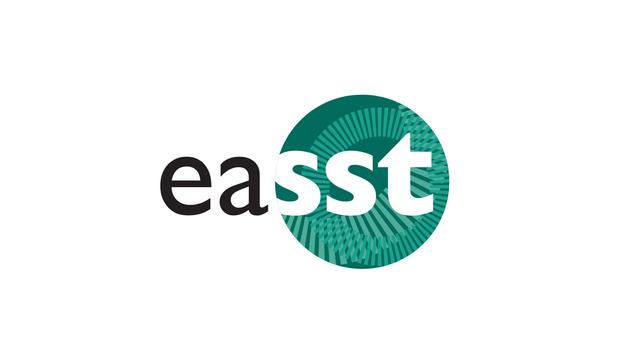
Ce matin double première :
* Intervenir au forum des Archivistes, après 4 participations
* Faire une intervention avec @LeuLeu
Merci à elle pour l'aventure, un joli temps partageé. Et voici un mini-site qu'elle a réalisé pour diffuser notre intervention de ce matin #AAFRennes2025 #Archives #STS #Infrastructure https://aldonzel.github.io/intervention-forum-AAF25/
Et je profite aussi pour remercier les personnes qui ont pu nous inspirer @jeromedenis @samgoeta @BertrandCaron
(To be clear, Williams had a wonderful #STS program and my class on Ethics of #AI with Joe Cruz was one of my favorites--but would love to see 10 new faculty members hired for this!) https://www.nytimes.com/2025/03/24/technology/reed-hastings-bowdoin-ai.html?unlocked_article_code=1.6k4.jjt8.vJNr-HVMTPp_&smid=url-share
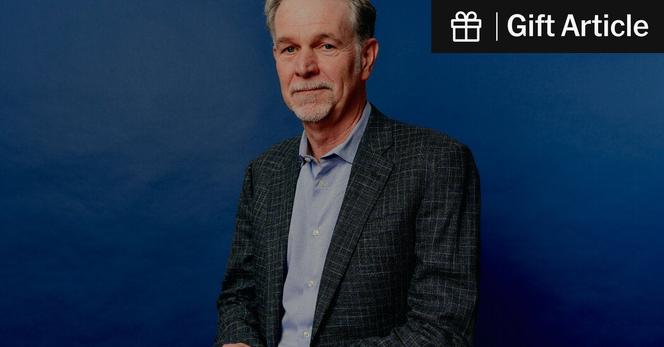
I have been looking for someone firmly within the bounds of #STS theory to take on disinformation and the decline of trust in science and it's finally here. I'm only about 1/3 of the way through this article and it is so, so necessary.
The reliance on an inherently trustworthy, omnipresent "science" that "says" things was always at risk of failing, and has never been how science built its trust.
https://journals.sagepub.com/doi/abs/10.1177/02704676251324470
@benlockwood As someone who started out planning to do forest ecology (and did my first degree mostly in that) and ended up in geography and planning, I really look forward to this article and unpacking it.
There's a lot of stuff in the subfield of Science, Technology, and Society (#STS) about similar contingencies and situatedness that to me has a lot of theoretical overlap things like assembly theory and other context-oriented theory in ecology. I should probably write something about this.
Un petit peu de revue de presse, avant de filer en cours.
Il n'y aura rien de mieux cette semaine que le long billet de @gauthier sur la reconfiguration des tendances techniques et économiques du numérique autour des IA génératives. Il donne énormément de matières à penser.

Last was "Testosterone: An Unauthorized Biography" by Rebecca Jordan-Young and Katrina Karkazis. This book does double duty - accounting for the current state of knowledge of the biological effects of testosterone in humans and the heavily biased development of that scientific investigation and its diffusion into the broader public. Highly recommend
Full review: https://bookwyrm.social/user/bwaber/review/7000532/s/a-fascinating-look-at-the-biological-functions-of-testosterone-and-its-social-and-scientific-milieu#anchor-7000532 (4/4) #sts #history #biology
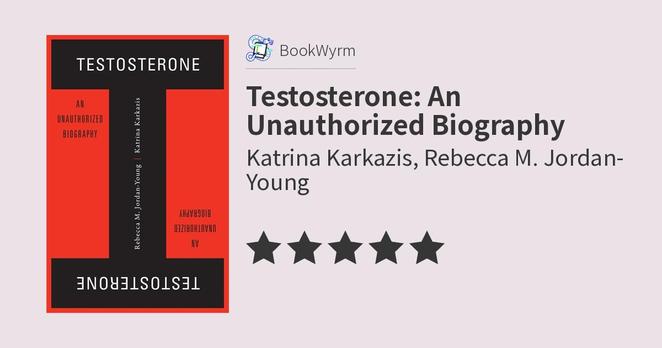
Our beautiful campus awaits the study seekers for the Master’s #OpenDay at the #UTwente . I am looking forward to the bright young people considering to study #Philosophy of #Science , #Technology and #Society with us :) Oh, and this is literally just across my office… #PhilTech #TechEthics #AIEthics #STS #HistoryOfTechnology
Veit Braun bespricht Discounting Futures. #sts
"Was bedeutet Diskontieren? Man verrechnet die Kosten der Gegenwart mit den antizipierten Gewinnen der Zukunft."
Forstwirtschaft, Bergbau, … ja, das Thema schallt in den #Bundestag hinein.
https://www.soziopolis.de/im-kaninchenbau-der-mathematik.html
Who is [re]writing Manuel Castells' "The Power of Identity" for the messy current situation that we're in? And yes, his books on the network society really deserve a [re]reading. This second one most specifically. #sociology #networksociety #STS
"The chapters, constructed as 'multispecies stories,' ... consider ecologies & infrastructure together in novel ways that challenge our conceptual separations between the two. Readers will find a theoretically exciting & vibrantly composed read with OIL BEACH"
https://ijoc.org/index.php/ijoc/article/view/24661
Thank you for this lovely review, Shelley Tuazon Guyton & IJOC!
Here's the book:
https://press.uchicago.edu/ucp/books/book/chicago/O/bo185167017.html
#Commodon #STS #EnvHist @ecologies @sts #OilBeach #multispecies #CriticalLogistics
yeah, going through the corrected chapter pdf
"La#oma’s pre-and post-carbon landscape: The ont*-politics of a vanished village", chapter 7 in our co-edited volume _The Cultural Complexity of Carbon: Green Transformations in Contemporary Society_
see https://assemblag.es/@i_ngli/113860193688156901
In my chapter, I engage with the politics of destroying, remembering, being the village #Lakoma in #Lusatia, in Germany, close to #Cottbus. Bringing my #STS analytics to the study of #heritage.
If you are aware of curious and critical students looking for a unique interdisciplinary #MSc Programme which combines #PhilosophyOfTechnology, #PhilosophyOfScience, #EthicsOfTechnology, #HistoryOfTechnology and #STS , please point them to #Philosophy of #Science , #Technology , and #Society. At the Open Day, they learn about our dedicated tracks on #TechnologyAndValues (in collaboration with 4TU.Centre for Ethics and Technology), #AI , and #Sustainability. https://www.utwente.nl/en/education/study-choice-calendar/master-open-day/#
What a great piece from @restofworld ! So many things to unpack for this story : environmental concerns, job creation, anti-communism, PR tactics, MAGA playbook, etc.
https://restofworld.org/2025/gotion-ev-battery-us-expansion-backlash-michigan/
